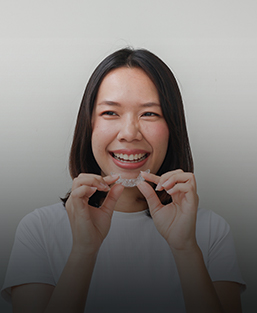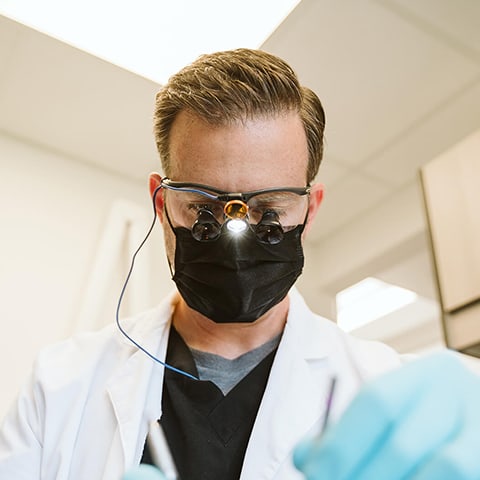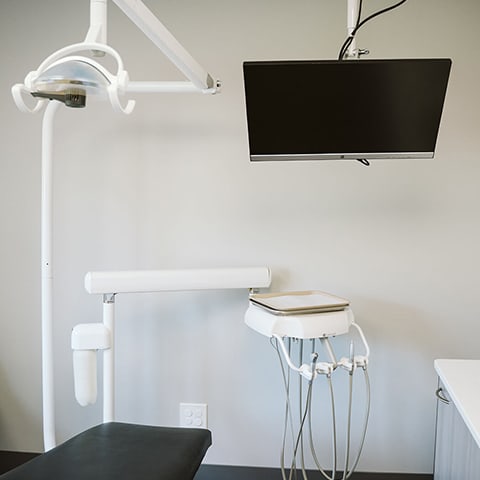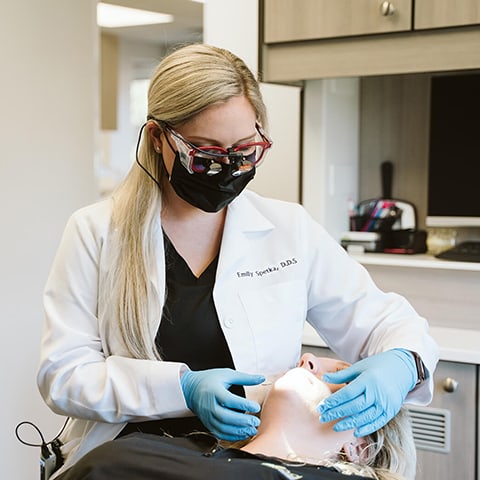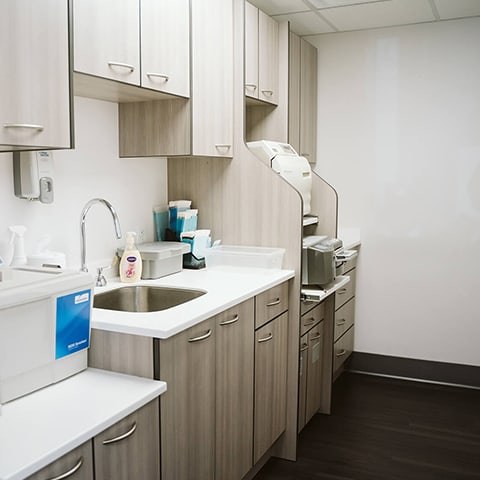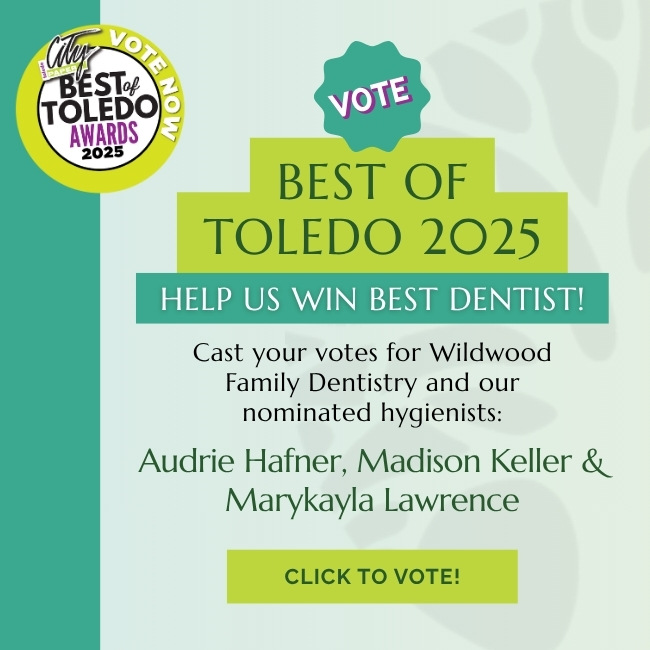Achieve a Brighter Smile
Your teeth can become darkened or stained from a number of different factors, but treatment and prevention are ways to keep your smile shining bright and white!
Whether you’re looking to freshen up your smile for a big event or you want to confidently show off your smile, our team is here to help. Visit us for a teeth whitening appointment.
Request AppointmentWhat to Expect from a Teeth Whitening Treatment
An in-office teeth whitening treatment will start with applying a whitening gel to the surface of your teeth. To activate the gel, an LED light will be applied for a specific amount of time, depending on your teeth and desired results.
All teeth are different and can respond differently to whitening treatments. Fillings, crowns, and veneers can’t be whitened during this process, but they can be replaced to match the new shade of your teeth.
What Causes Discoloration?
Stains and discoloration can be categorized into 3 different types: extrinsic, intrinsic, and age-related.
Extrinsic
Extrinsic discoloration encompasses stains that affect only the surface of the tooth or the tooth enamel. This typically comes from:
- Food such as red sauces or chocolate
- Beverages such as coffee, red wine, and tea
- Tobacco in the form of cigarettes or chewing tobacco
Intrinsic
Intrinsic stains are caused from within the tooth and look more gray in color. These stains can come from:
- Certain medications
- An injury to the tooth
- Tooth decay
- Genetics
Age-Related
Aging can cause your enamel to begin to wear down, allowing staining or yellowing to occur. Age-related discoloration can also come from a combination of extrinsic and intrinsic factors.
Maintaining Your Results
After a teeth-whitening treatment, your teeth are still prone to becoming stained or discolored. By practicing good oral hygiene, you can help maintain your results.
We can’t wait to see you smile bright! Visit us today.
Request AppointmentVisit Our Locations
Wildwood Dentistry Sylvania
- Phone: 419-536-9196
- Email: info@wildwoodfamilydentistry.com
- 4139 N. Holland Sylvania Road
- Toledo, Ohio 43623
Hours
- Monday: 8:30 AM – 5:00 PM
- Tuesday: 8:30 AM – 4:00 PM
- Wednesday: 8:30 AM – 4:00 PM
- Thursday: 8:30 AM – 4:00 PM
- Friday: By Appointment
- Saturday: Closed
- Sunday: Closed
Wildwood Dentistry Toledo
- Phone: 419-472-5720
- Email: toledo@wildwoodfamilydentistry.com
- 3900 Sunforest Court, Suite 119
- Toledo, Ohio 43623
Hours
- Monday: 8:00 AM – 4:00 PM
- Tuesday: 8:00 AM – 4:00 PM
- Wednesday: 8:00 AM – 4:00 PM
- Thursday: 7:00 AM – 2:00 PM
- Friday: 7:00 AM – 1:00 PM
- Saturday: Closed
- Sunday: Closed
Our Google Reviews
Our Blogs
How to Improve Your Oral Hygiene: A Guide
Oral HealthGood oral hygiene comes from a consistent at-home routine combined with regular dental visits. […]
How Long Does a Dental Implant Procedure Take?
Dental ImplantsThe complete dental implant process, from your first consultation to the final crown, typically takes between 3 and 9 months. […]
How Long Do You Have to Wear Invisalign?
InvisalignThe length of your treatment depends on a few different things, and the timeline is unique to your smile. […]
How to Improve Your Oral Hygiene: A Guide

Good oral hygiene comes from a consistent at-home routine combined with regular dental visits. […]
How Long Does a Dental Implant Procedure Take?
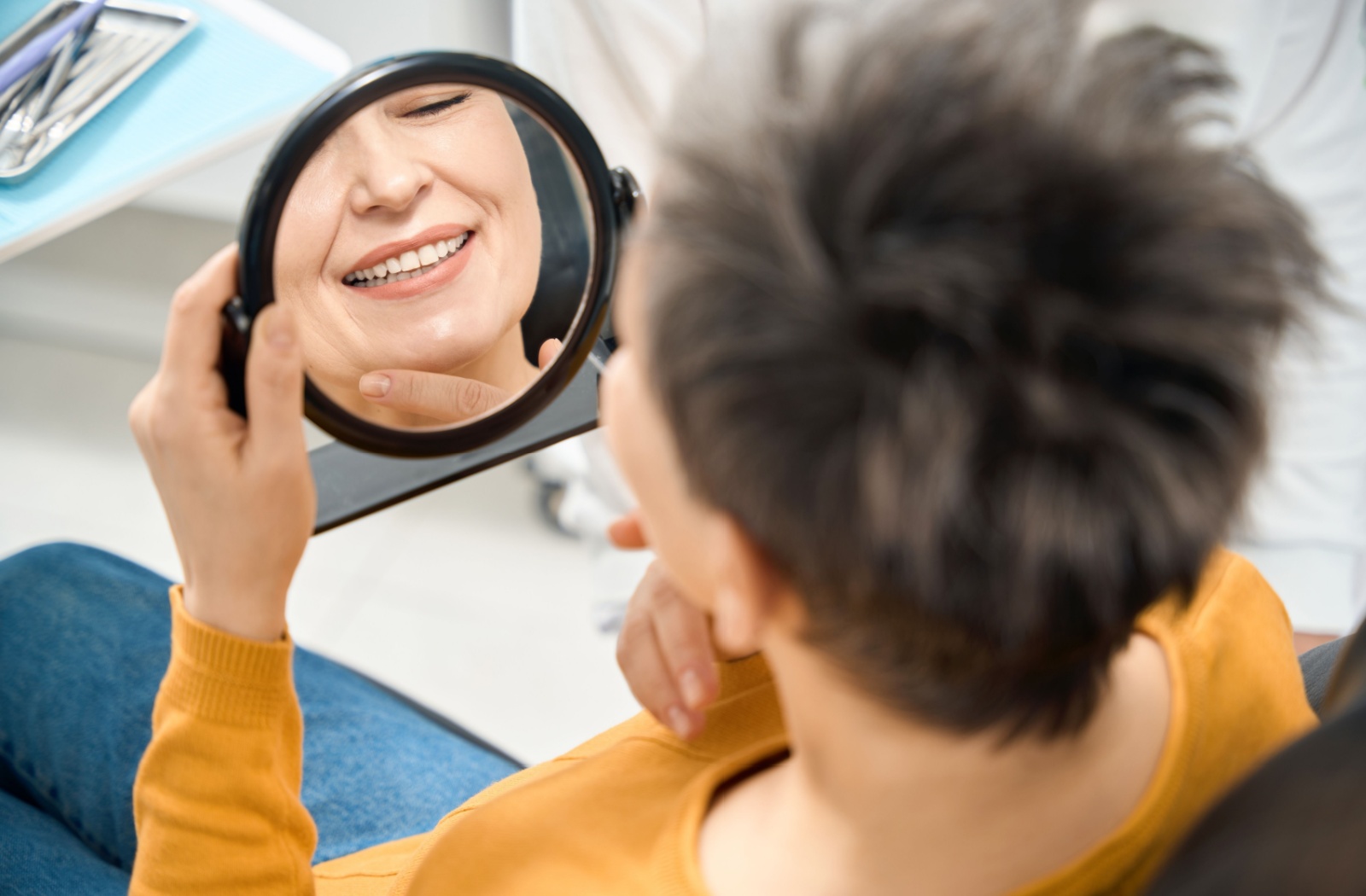
The complete dental implant process, from your first consultation to the final crown, typically takes between 3 and 9 months. […]
How Long Do You Have to Wear Invisalign?
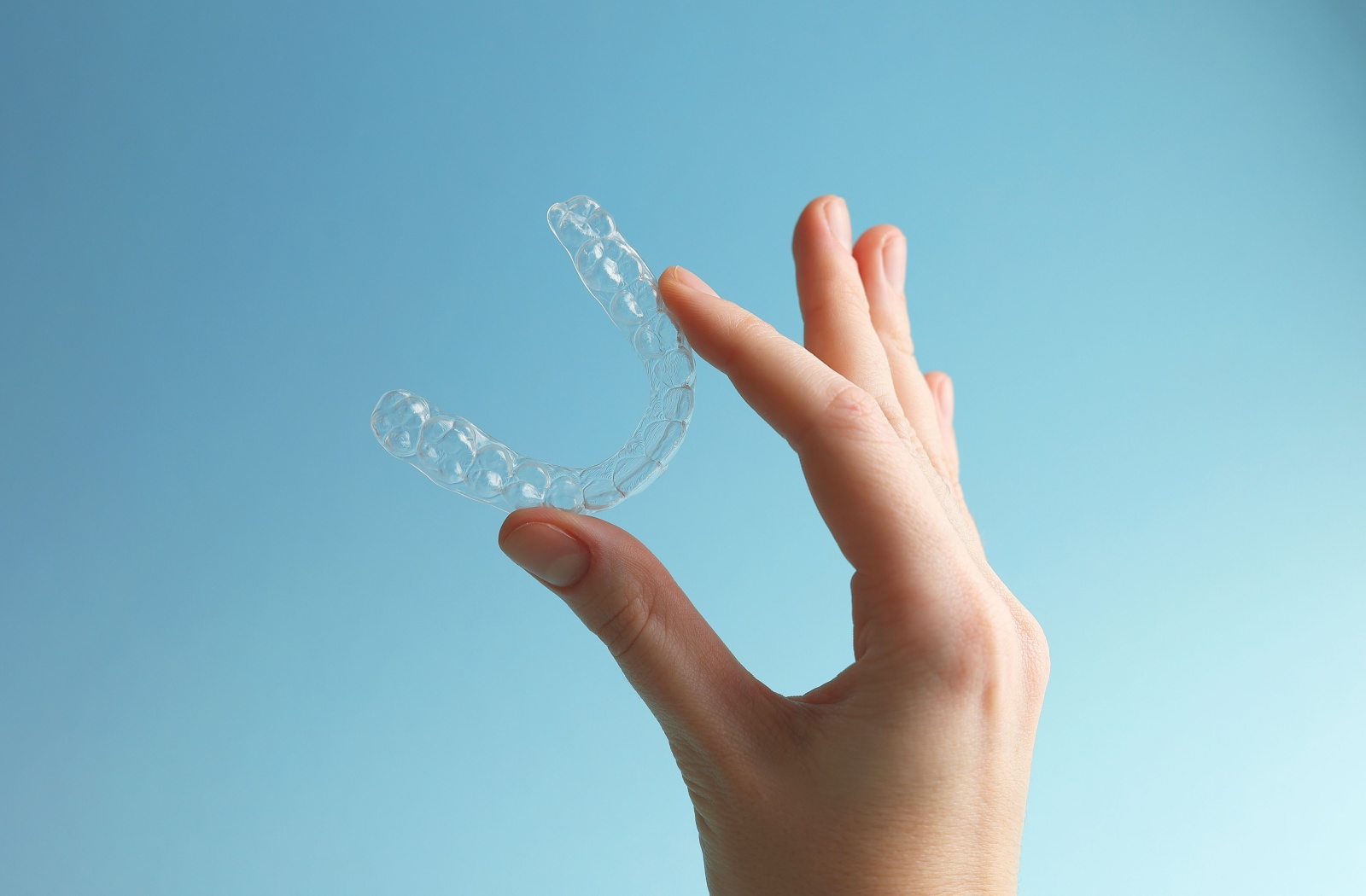
The length of your treatment depends on a few different things, and the timeline is unique to your smile. […]





